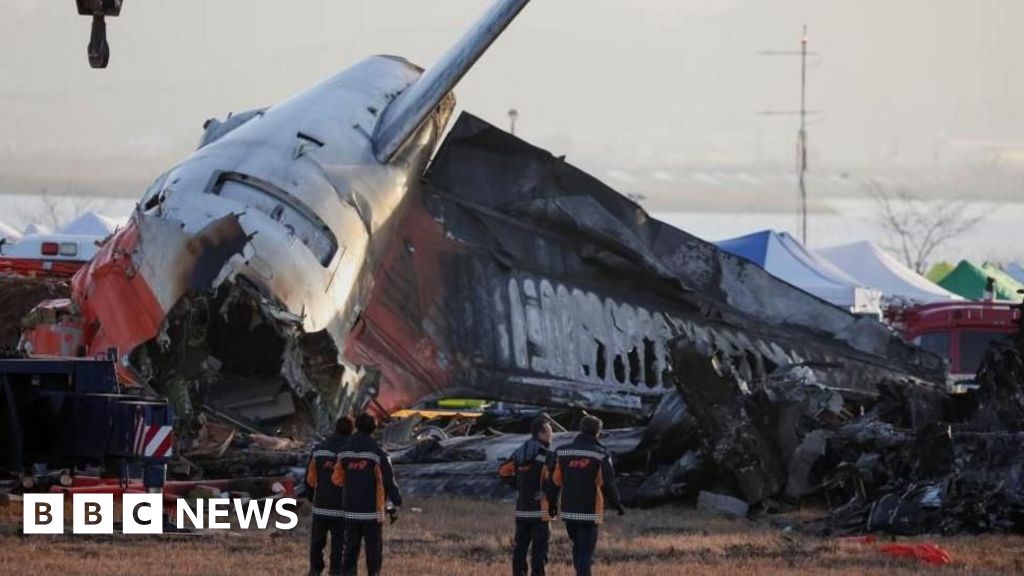ARTICLE AD BOX
By Reality Check & BBC Urdu
BBC News
image sourceAFP
image captionAnti-Taliban forces have been resisting a push into the Panjshir areaAs the Taliban seek to consolidate their hold over Afghanistan, there have been claims that Pakistani drones have been helping them against anti-Taliban forces.
We've been looking into these claims - which have been denied by Pakistan.
What are the claims about drones?
Taliban fighters have been battling forces based in Panjshir province, north-east of Kabul, in what has been the last area of the country resisting the Taliban advance.
Claims have emerged that in recent days, Pakistani drones have been used to help the Taliban, by targeting anti-Taliban positions.
One of the sources was an Afghan journalist, Tajuddin Soroush, who says he was told by Panjshir Governor Kamaluddin Nizami, "that Pakistan had bombed the Panjshir valley in Afghanistan with drones."
Other claims highlight that some targets were struck from the air, suggesting that only Pakistan had the capability to carry these out.
image sourceReuters
image captionThere have been claims that anti-Taliban forces have been targeted by Pakistani dronesSome of these claims have been widely shared by social media accounts, to show what they say is evidence of Pakistani interference in Afghanistan's affairs.
Iranian and Indian media have had reports alleging Pakistani involvement, including in some cases using misleading photos said to show Pakistani military hardware.
The claims have been dismissed by Pakistan, as well as by the Taliban.
A spokesman for the Pakistani armed forces, General Babar Iftikhar, told the BBC they were "complete lies" and called it "irrational propaganda from India".
"Pakistan has nothing to do with what is happening inside Afghanistan, be it Panjshir or anywhere else."
Pakistan has long been accused by the US and others of providing support for the Taliban, which it has always denied.
But parts of its military and intelligence establishment have kept links with groups in Afghanistan, like the Taliban.
Does Pakistan have its own drones?
In March 2015, Pakistan publicised the fact that it was using drones against militants operating in its own territory, in the North Waziristan tribal region.
image sourceGetty Images
image captionPakistan's Burraq drone on display at a military parade in 2015It used the home-made Burraq drone which can carry surface-to-air, laser-guided missiles.
The Burraq drone was designed and and developed by the National Engineering and Scientific Commission in Pakistan.
There have also been reports that Pakistan has acquired longer-range drones with the help of Turkey or China, or both.
Last year, there were reports that Pakistan had bought the Chinese-made Wing Loong II, which a BBC investigation found had also been used by the UAE in the conflict in Libya.
image sourceGetty Images
image captionThe CH-4 on display at a Beijing aviation show (file photo)But there's particular interest in reports that Pakistan has acquired Chinese-made CH-4 drones, which can be used both for intelligence gathering and for attacks.
These are the same drones that Saudi Arabia is using to fight Houthi rebels in Yemen.
According to the defence journal Janes Defence Weekly, the CH-4 is a class of UAVs or unmanned aerial vehicles.
One type, the CH-4A, is mainly for surveillance and can stay in the air for about 30 hours. The second type is the CH-4B, which can carry up to 345 kg of explosives, but can only stay airborne for 14 hours.
It's not clear which version Pakistan might have and whether it's operational - and Pakistani officials have denied having any long-range drone capability.
In addition, Pakistan has a Shahpar 2 drone that can fly for up to 14 hours, and which can also be armed. It has other drones, but these are used for surveillance, and cannot be equipped with missiles.
Could Pakistan have used drones in Afghanistan?
At the moment, there's no solid evidence that it has, and some doubts about whether it would make sense to do so.
This is from 12 July this year, and can be seen on Google Earth, where it shows an air base near Bahawalpur with what appear to be four drones.
While this might be useful for trying to assess Pakistan's drone capabilities, it doesn't mean they were used in the Panjshir region recently.
Justin Bronk, of the London-based Royal United Services Institute, doubts if they were.
He points out that the Chinese-made CH-4 uses a Chinese-operated satellite communications network to pinpoint long-range targets.
"The Chinese may be reluctant to facilitate any Pakistani cross-border violations," he says.
"In that case, the CH-4 would need a direct line-of-sight radio control link from a ground station, making it extremely difficult - but not impossible - to operate significant distances from the Pakistani border in rugged terrain."
There's also the question of what exactly Pakistan would gain by carrying out strikes now.
Islamabad-based defence analyst Dr Maria Sultan says: "Irrespective of the question of whether Pakistan has the [drone] capability or does not have it, there does not seem [to be] any strategic advantage in carrying out such a strike."
Justin Bronk adds that given the outcome of the struggle to control Afghanistan is already guaranteed, "it's not clear if strategically it would make sense at this point for the Pakistanis to intervene so directly."
Reporting and research by Farhat Javed in Islamabad

 3 years ago
61
3 years ago
61








 English (US) ·
English (US) ·